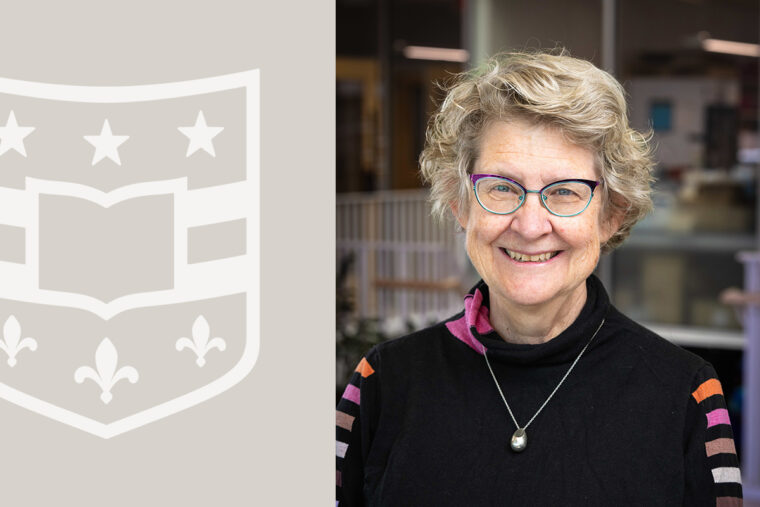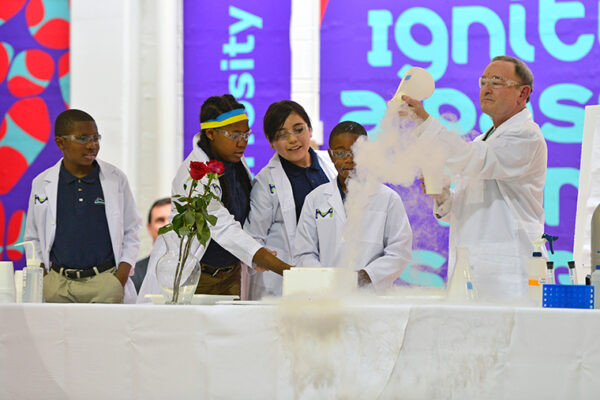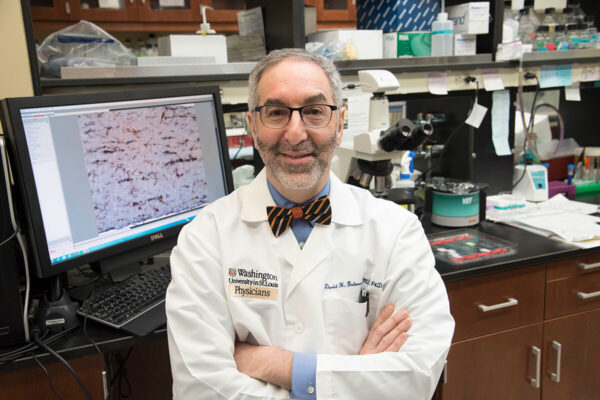Susan K. Dutcher, PhD, a professor of genetics and of cell biology and physiology at Washington University School of Medicine in St. Louis, is one of 120 members and 30 international members recently newly elected to the National Academy of Sciences in recognition of her distinguished and continuing achievements in original research. Election to the academy is considered one of the highest honors accorded a U.S. scientist or engineer.
Throughout her career, Dutcher has expanded scientists’ understanding of the structure and function of cilia. These hair-like structures on the surface of cells act like antennas to process signals essential for development and survival, and beat in rhythmic fashion to remove potentially harmful pathogens. The malfunctioning of cilia or the structure that anchors them to cells — called the basal body — can contribute to the development of chronic kidney and lung diseases, congenital heart defects and other health problems.
“Susan Dutcher’s groundbreaking contributions in genetics, cell biology and genomics have earned her international recognition as a leader in her field,” said David H. Perlmutter, MD, executive vice chancellor for medical affairs, the Spencer T. and Ann W. Olin Distinguished Professor and the George and Carol Bauer Dean of WashU Medicine. “I extend my enthusiastic congratulations to Susan on this recognition from the National Academy of Sciences — an honor that reflects the depth and impact of her research. Her discoveries are advancing our understanding of how many human diseases develop and opening doors to new possibilities for better treatments.”
Through pioneering studies, Dutcher has identified numerous genes required for the assembly and proper functioning of cilia in the green alga Chlamydomonas, a model organism, and their counterparts in humans. In 2004, she developed a computational, comparative genomics approach that identified a large set of previously unknown cilia and basal body genes. Dutcher found that these genes are associated with human diseases, known collectively as ciliopathies, caused by the malfunctioning of cilia. In collaboration with colleagues at WashU Medicine, she has enabled the analysis of the structure of cilia to obtain atomic resolution of many protein complexes.
Her studies have laid a foundation for improving the diagnosis and treatment of patients with ciliopathies, including those with polycystic kidney disease, which currently is treated with dialysis; primary ciliary dyskinesia, which causes chronic lung disease, misplaced organs and infertility; Bardet-Biedl syndrome, which leads to blindness in childhood and diabetes, kidney disease and extreme obesity; and many congenital heart defects, which occur when left-right asymmetry goes awry and require complex surgeries to repair.
Dutcher, who joined the WashU Medicine faculty in 1999, is a fellow of the American Association for the Advancement of Science, the American Society for Cell Biology and the American Academy of Arts and Sciences. She received the 2019 George Engelmann Interdisciplinary Award from the Academy of Science-St. Louis and 2018 Distinguished Investigator and 2017 Distinguished Educator awards from WashU Medicine. Dutcher also was a Searle Scholar and has won the National Science Foundation’s Faculty Award to Women Scientists and Engineers. She served as chair of the Department of Genetics from 2006-09 and as director of the McDonnell Genome Center from 2016-18.
Dutcher earned a bachelor’s degree in biology with honors from Colorado College. She went on to earn a doctorate in genetics from the University of Washington, where she trained with Leland Hartwell, PhD, who won the Nobel Prize in Physiology or Medicine in 2001. Before coming to WashU Medicine, she did her postdoctoral work at Rockefeller University and was a professor of molecular, cellular and developmental biology at the University of Colorado, Boulder.
About Washington University School of Medicine
WashU Medicine is a global leader in academic medicine, including biomedical research, patient care and educational programs with 2,900 faculty. Its National Institutes of Health (NIH) research funding portfolio is the second largest among U.S. medical schools and has grown 56% in the last seven years. Together with institutional investment, WashU Medicine commits well over $1 billion annually to basic and clinical research innovation and training. Its faculty practice is consistently within the top five in the country, with more than 1,900 faculty physicians practicing at 130 locations and who are also the medical staffs of Barnes-Jewish and St. Louis Children’s hospitals of BJC HealthCare. WashU Medicine has a storied history in MD/PhD training, recently dedicated $100 million to scholarships and curriculum renewal for its medical students, and is home to top-notch training programs in every medical subspecialty as well as physical therapy, occupational therapy, and audiology and communications sciences.
Originally published on the WashU Medicine website



